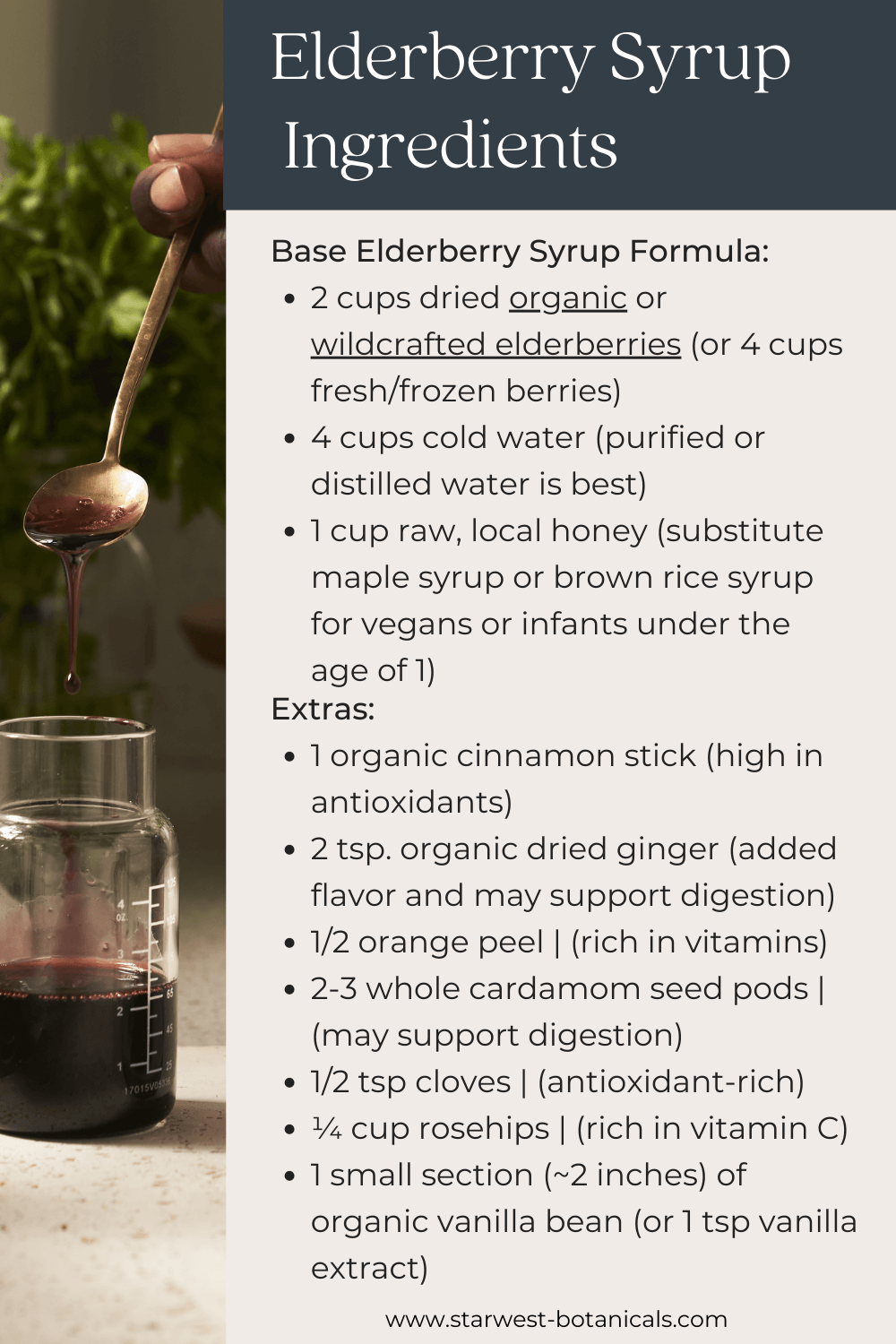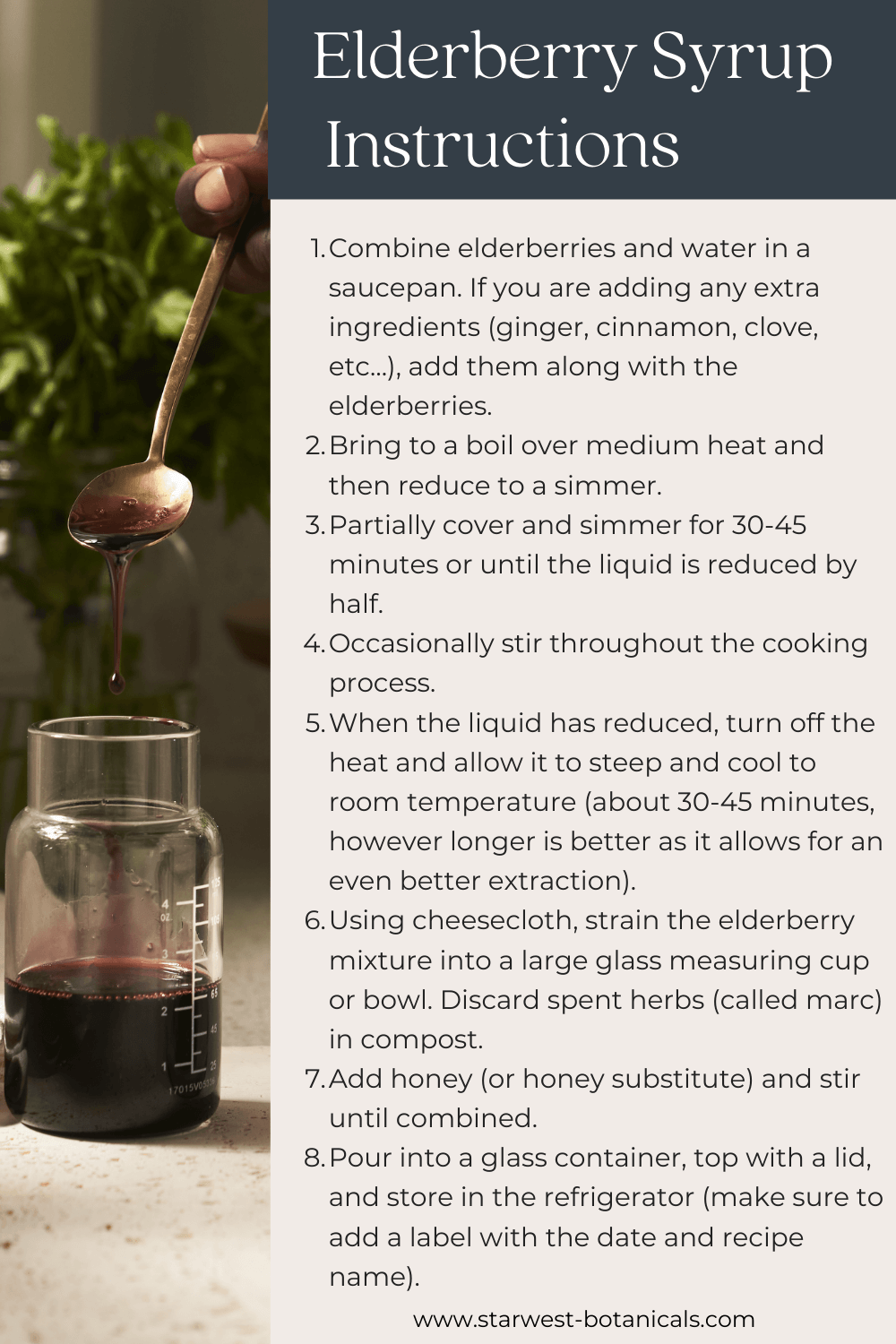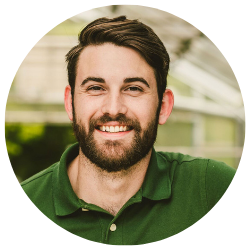Elderberry Syrup Recipe
Posted by Daniel Powers on 03-10-2023

Elderberries are rich in nutrients and antioxidants, making them a great addition to your diet. Elderberry syrup has a delicious flavor and can be used in many ways, including as a topping for pancakes or mixed with sparkling water for a refreshing drink.
Making elderberry syrup is easy and cost-effective and making your own elderberry syrup with dried elderberries ensures that you're getting a high-quality, natural product without any additives or preservatives.
With just a few ingredients and a little bit of time, you can create a versatile and delicious syrup that you can enjoy all season long.
Don't miss out on the benefits of elderberry syrup. Try making your own at home and enjoy a tasty and nutritious addition to your pantry.
In fact, taking elderberry syrup is known as an herbal remedy that may support overall health - AND with the right recipe, it tastes incredible.
In this article, we’ll detail the benefits of elderberry and how you can make a DIY elderberry syrup that your whole family will love.
Benefits of Elderberry Syrup:
Elderberries are dark-colored berries that come from the elder tree (known as Sambucus nigra).
Elderberries are rich in various vitamins and minerals. They are also rich in anthocyanins (an-tho-SY-uh-nins), a special type of flavonoid that gives elderberries their rich purple color.
In fact, researchers have discovered that elderberry is one of the richest fruits in anthocyanins, which have strong antioxidant properties.
Modern research shows that elderberries may help to support overall health and wellbeing.
As a bonus, elderberries are generally well tolerated by the whole family.
This makes elderberry syrup an ideal way to help support the immune system, especially during the winter months.
Notes on Making Elderberry Syrup:
Taking elderberry syrup is a tasty way to support your immune health.
Elderberries on their own have a sour, acidic flavor. When made into a syrup with honey, this helps to do two things. First, it helps to preserve the elderberries. Second, it helps to balance out the sour flavor.
We don’t typically think of sugar as a preservative, however, it plays an important role in stabilizing water content in foods, which slows the growth of bacteria, molds, and yeast.
Elderberry syrup can be made with a variety of different types of sweeteners. Honey is preferred since it’s a natural sweetener and provides its own benefits.
However, brown rice syrup or maple syrup can be substituted for honey. As a bonus, these sweetener alternatives are vegan.
You can add additional herbs for extra flavor and added health benefits. A couple of common herbs that are frequently added to elderberry syrup include cinnamon, ginger, cardamom, and clove. We also like to add our Rosehips for an extra boost of Vitamin C.
If you have particular questions about making elderberry syrup, make sure to check out the FAQ at the bottom of this article.

Homemade Elderberry Syrup:
Makes about 3 cups of elderberry syrup
Active Time: ~1 hour
Equipment Needed:
1 organic cinnamon stick (high in antioxidants)
2 tsp. organic dried ginger (added flavor and may support digestion)
1/2 orange peel | (rich in vitamins)
2-3 whole cardamom seed pods | (may support digestion)
1/2 tsp cloves | (antioxidant-rich)
¼ cup rosehips | (rich in vitamin C)
1 small section (~2 inches) of organic vanilla bean (or 1 tsp vanilla extract)

INSTRUCTIONS
- Combine elderberries and water in a saucepan. If you are adding any extra ingredients (ginger, cinnamon, clove, etc…), add them along with the elderberries.
- Bring to a boil over medium heat and then reduce to a simmer.
- Partially cover and simmer for 30-45 minutes or until the liquid is reduced by half.
- Occasionally stir throughout the cooking process.
- When the liquid has reduced, turn off the heat and allow it to steep and cool to room temperature (about 30-45 minutes, however longer is better as it allows for an even better extraction).
- Using cheesecloth, strain the elderberry mixture into a large glass measuring cup or bowl. Discard spent herbs (called marc) in compost.
- Add pre-measured honey (or honey substitute) and stir until combined.
- Pour into a glass container, top with a lid, and store in the refrigerator (make sure to add a label with the date and recipe name).
NOTES:
Don’t be afraid to customize this elderberry syrup recipe. We included a few of our favorites above. Feel free to experiment along the way and make this recipe your own.
Elderberry Syrup FAQs:
Below are a few common questions that readers have in regard to making homemade elderberry syrup.
How Long Does Homemade Elderberry Syrup Keep?
This variation of elderberry syrup will generally keep in the refrigerator for ~2 months. If more honey and/or alcohol is added, this will help to increase shelf life.
How Much Elderberry Syrup Should I Take?
Children: may take 1 teaspoon each day.
Adults: may take 1 tablespoon each day.
What Is the Best Honey Substitute in Elderberry Syrup?
You can substitute maple syrup or brown rice syrup for honey in this recipe.
Can I Reuse Spent Elderberries?
We don’t recommend reusing elderberries once they’ve already been extracted. When you heat up elderberries in water, this extracts most of their nutrients. Reusing these elderberries would provide a very weak extract with minimal health benefits.
Conclusion:
Learning how to make your own DIY elderberry syrup is an empowering experience.
It’s a fantastic way to take your health into your own hands - and the end product is downright delicious (and beneficial!).
Have you made elderberry syrup before? What's your favorite recipe addition?
Author Bio:

Daniel has a master's degree in herbal science from the Maryland University of Integrative Health. He's the founder of The Botanical Institute, where he writes about the health benefits of herbs.


